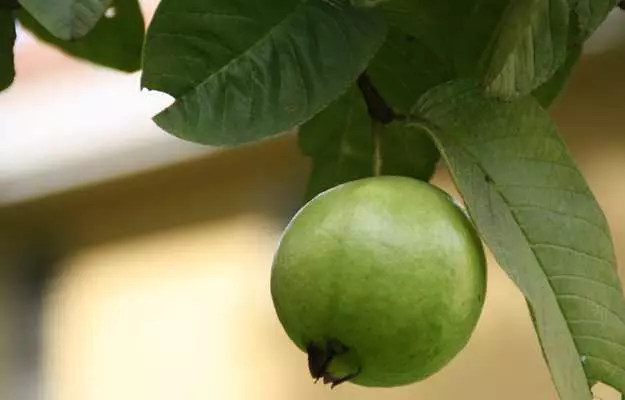Hasn’t everyone enjoyed a plate of guavas sprayed with chaat masala at least once? No other fruit matches up to the sweet and intoxicating aroma of guava fruit that is the characteristic of many luscious jams, jellies, purees, nectar, guava cakes, juices, and murabbas.
Also, referred to as Amrood in Hindi, guava comes packed with little arduous seeds at the centre, in fact, the taste of guava fruit might not be complete without the crunch of the guava seeds. Guava is a tropical fruit and it grows well beneath subtropical conditions. It possesses its genesis in Central America where it's instead referred to as "Sand Plum". Early Spanish and Portuguese colonizers imported it to New World, the East Indies, and Guam. It was later accepted as a crop in Asia and in warm zones of Africa and is currently grown widely everywhere in the tropics and subtropics.
If pineapple is referred to as the king of fruits, guava is taken into account as the queen. Soft, sweet, and aromatic once ripe, guavas are tiny and spherical or oval, with colours ranging from yellow to pink to red, reckoning on the variability. It is one amongst the foremost common and important fruits of India and regarded as the fifth most vital fruit in the area after mango, citrus, banana, and apple. Guavas are excellent even if merely sliced for a snack or added to salads. In different areas of the world, guava is famous as a thick, flavourful paste created in a cheese base. Natural and fresh guava juice is common in Hawaii. In Fiji, guavas are utilized to prepare tasty jelly.
Besides being known for its distinctive flavour and aroma, guava has also been considered as one of the 'superfruits' because of the various health advantages it provides. This gentle fruit is great in ascorbic acid, lycopene, and antioxidants that are helpful for the skin and immunity. In fact, guava is treated as the apple of the tropics because of its high Vitamin C and mineral presence. Guavas are a powerhouse of nutrients and a great source of manganese that helps the body soak up different key nutrients from the food we eat. The advantages of guava on sexual health are attributable to the existence of folate, a mineral that helps promote fertility. Furthermore, the potassium present in guavas helps to regulate blood pressure levels. Interestingly, bananas and guavas contain nearly an identical quantity of potassium.
As an inexpensive nourishing fruit with a good ability to numerous environmental conditions and soil conditions, guava is a perfect crop to grow in developing countries. Guava is a firm, prolific bearer and an extremely remunerative fruit. It provides more return per unit area and can be grown everywhere in the country within the room agriculture, close to the well and tube-well premises and on a commercial basis.
Some basic facts about Guava:
- Scientific Name: Psidium guajava L.
- Family: Myrtaceae
- Common Name(s): Guayabo (Spanish), goiabeira (Portuguese), red guava, guava, kuawa, Guava (English)
- Genus: Psidium
- Sanskrit name: Peruka पेरुक
- Hindi name: अमरूद (Amrood)
- Native Region and Geographical Distribution: Guava is native to the tropical regions of southern America and Mexico. Other countries that cultivate guava are Thailand, Indonesia, China, Mexico, Brazil, Philippines, Bangladesh and the Federal Republic of Nigeria. India is the largest producer of guava in the world. The state of Maharashtra accounting for 12.8 percent of guava production in India, followed by Madhya Pradesh (10.2%), Uttar Pradesh (10.0%) and Bihar state (9.76%). The best quality guava is grown in Uttar Pradesh. Interestingly, the district of Allahabad in U.P encompasses a fame for growing the best quality of guava not only in India but also in the world.
- Fun Facts:
Distinct kinds of guavas exist but they don’t come under one species. They belong to alternative species and typically alternative genera. As an example, the Acca Sellowiana which is the scientific name for Pineapple Guava.
The foremost and unremarkably found and devoured guavas are known as the “Apple Guavas”.
























